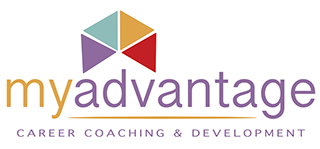
Job hunting can feel like an emotional rollercoaster—especially when your resume isn’t getting the attention you hoped for, or you’re not landing those elusive second interviews. The good news is that this is often an opportunity to recalibrate your approach rather than a reflection of your capabilities. Here are some actionable steps to help get you back on track:
1. Tailor Your Resume for Each Job
One of the biggest mistakes job seekers make is submitting a generic resume. Recruiters and Applicant Tracking Systems (ATS) can easily detect when a resume isn’t tailored to the specific job. It’s crucial to carefully read the job description and modify your resume to emphasize the skills and experiences most relevant to the position.
Pro Tip: Use keywords from the job posting in your resume to increase your chances of passing through the ATS filters.
2. Focus on Achievements, Not Just Responsibilities
Many resumes read like job descriptions, listing responsibilities rather than accomplishments. To stand out, focus on what you’ve achieved in each role rather than simply stating your duties. Quantify your successes where possible, as metrics are a powerful way to demonstrate impact.
Example: Instead of saying “Managed social media accounts,” say “Increased social media engagement by 30% through targeted campaigns.”
3. Enhance Your Personal Brand
In today’s competitive job market, having a personal brand can set you apart from other candidates. Ensure that your online presence, particularly LinkedIn, reflects your professional persona and supports your resume. Share relevant industry content, post insights, and engage with others in your field to build visibility.
Pro Tip: Make sure your LinkedIn profile is fully optimized with a professional photo, an impactful headline, and a compelling summary that echoes the key points from your resume.
4. Reassess Your Cover Letter Strategy
If you’re consistently not getting interviews, your cover letter might be part of the problem. A strong cover letter should be concise, enthusiastic, and tailored to the specific role. Rather than repeating what’s on your resume, use it as an opportunity to convey your passion for the position and the company.
Pro Tip: Research the company and incorporate what you’ve learned into your cover letter. Demonstrating that you understand the organization’s goals and culture can make a lasting impression.
5. Practice Interviewing Skills
If you’re landing initial interviews but not getting second ones, your interviewing technique may need work. Practice answering common questions, but also prepare for behavioral and situational questions using the STAR method (Situation, Task, Action, Result). Recording yourself or getting feedback from a career coach can help you refine your responses and delivery.
Pro Tip: Be prepared to ask insightful questions about the role and company. This shows you’re genuinely interested and engaged, and can leave a positive impression.
6. Request Feedback
When you’re consistently being passed over after the first interview, don’t be afraid to ask for feedback. While some companies may not provide it, others are happy to share insights on why you weren’t selected to move forward. This information can be invaluable for improving your performance in future interviews.
7. Leverage Networking
Sometimes, it’s not what you know but who you know. If you’re not getting interviews, your resume may not be the issue—it could be a lack of connections within the industry. Attend networking events, engage with industry groups online, and reach out to people in your field. Building relationships can sometimes help get your resume in front of the right people.
8. Consider Professional Help
If you’ve been job hunting for an extended period without success, it may be time to seek help from a professional. A career coach or resume writer can provide expert guidance and help you uncover any blind spots that may be holding you back.
Final Thought: Persistence Pays Off
The job search process can be daunting, but don’t get discouraged. Often, small adjustments to your resume, cover letter, or interview techniques can make all the difference. Stay persistent, keep learning from each experience, and continue refining your approach—you’ll get there!
By implementing these strategies, you’ll be well on your way to getting the attention your resume deserves and landing those second interviews that bring you closer to your next career opportunity.
—
As a hiring expert and career coach, my goal is to help you unlock your potential and achieve career success. If you’re struggling with your job search, feel free to reach out for personalized advice or guidance.
